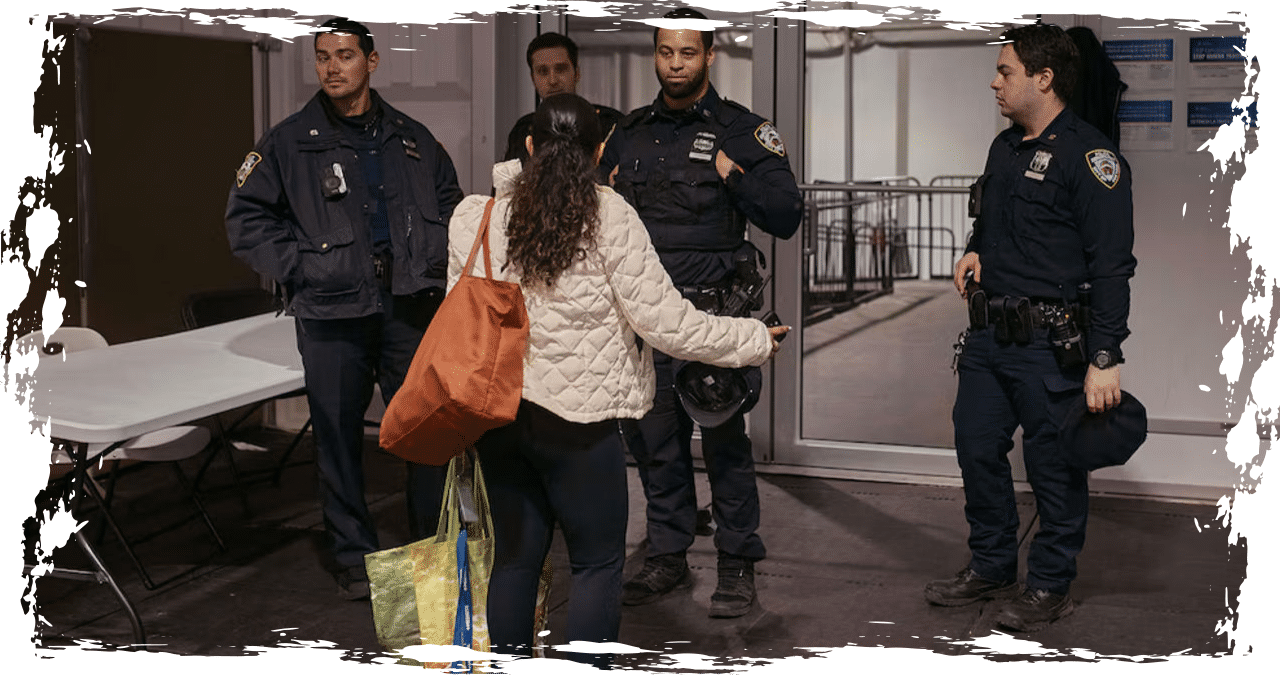New York City is taking stronger measures to address the overcrowding in its shelters by implementing a new rule that requires certain adult asylum-seekers to find alternative accommodations within a month. This move aims to alleviate the strain on the system and provide support to those in need.
Migrants who do not have young children are now required to vacate the hotels, tent complexes, and other shelter facilities operated by the city within 30 days. For individuals aged 18-23, the deadline is extended to 60 days. However, they can request an exemption if they can provide evidence of “extenuating circumstances.”
As of Wednesday, the number of migrants who have reached their limit and applied for an extension stands at 192. Out of these, 118 have already been approved, according to Mayor Eric Adams’ office. It is anticipated that thousands more will receive eviction notices in the upcoming months.
Mamadou Diallo, a 39-year-old man from Senegal, is uncertain about his future as his time at a shelter in the Bronx comes to an end later this week.
He is hoping to receive an extension, as he recently submitted his asylum application and has been attending English classes. However, according to federal regulations, he cannot apply for a work permit until approximately five months after applying for asylum.
“I have nowhere to go,” Diallo expressed on Wednesday. “I am attending school and actively searching for employment. I am giving it my all.”
In March, Adams’ administration successfully made changes to the city’s “right to shelter” rule, which mandated the provision of temporary housing for every homeless individual who requested it. As a result, new restrictions have been implemented.
Before the new rule took effect, adult migrants without children were only allowed to stay in a shelter for a maximum of 30 days. However, they had the option to reapply for a new bed without any inquiries immediately.
Migrant families with young children are limited to 60-day stays in the city. However, they are not affected by the new rule and can still reapply without having to provide any justification.
The audit discovered that the rollout of the project has been described as “haphazard” over the course of the last six months.
Immigrant rights and homeless advocates are closely monitoring the eviction process, which is affecting approximately 15,000 migrant adults. Currently, the city shelter system provides housing for around 65,000 migrants, with a significant number being families with children.
David Giffen, executive director of the Coalition for the Homeless, expresses his concern that individuals may be denied access to shelter due to appealable reasons, errors, or inadequate documentation. He emphasizes the importance of closely monitoring the situation to ensure that no one in need of shelter in New York City is left without a place to sleep.
In response to critics who have labeled New York City’s migrant shelter rules as inhumane and poorly implemented, Adams, a Democrat, defended the city’s position by emphasizing the practical challenges of housing migrants indefinitely. He highlighted that the city has already accommodated close to 200,000 migrants since the spring of 2022, with over a thousand new arrivals coming in every week.
“People used to criticize the act of displacing individuals during the winter season, but now they argue that it’s cruel to do it in the summer,” Adams expressed. “There really isn’t a perfect time for such actions. There’s simply no ideal time.”
Denver, a city that has experienced an increase in migrants, is implementing a comprehensive program to support them. This program offers six-month apartment stays and intensive job preparation for those who are not yet legally permitted to work. In contrast, Chicago has established a 60-day limit on shelter stays for adult migrants with no possibility of extension. Similarly, Massachusetts will be enforcing a nine-month cap on family stays, effective from June onwards.
In October, Adams requested the court to completely suspend the “right to shelter” requirement. However, this proposal was met with opposition from immigrant rights and homeless advocacy groups. Eventually, in March, a settlement was reached, establishing the new rules for migrants.
City officials will still have the authority to grant extensions on shelter stays on a case-by-case basis, as stated in the agreement.
Migrants are required by city officials to demonstrate their commitment to resettlement by undertaking various significant efforts. These efforts include applying for work authorization or asylum, as well as actively seeking employment or accommodation.
Migrants have the option to request an extension under certain circumstances. For instance, if they can provide evidence of their intention to relocate outside the city within 30 days, have an imminent immigration-related hearing, or are undergoing a significant medical procedure or recovery.



